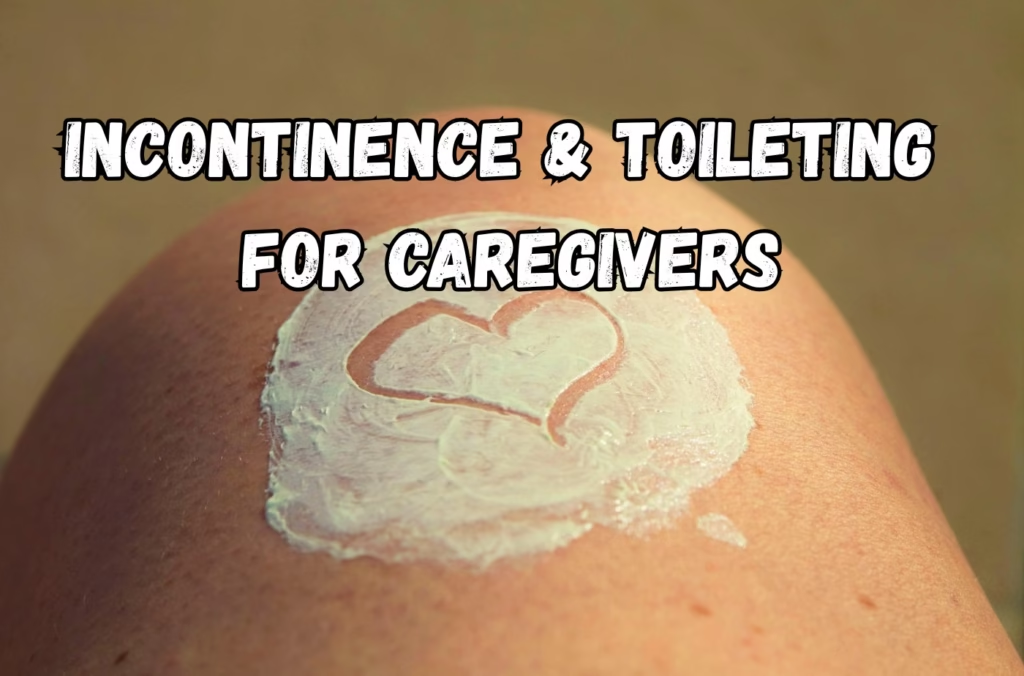Experiencing dementia is challenging not only for the patients but also for their caregivers. A particularly delicate issue that often goes unaddressed is the frequency of profanity and inappropriate language which these patients may exhibit. Dealing with profanity in dementia requires understanding, strategies, and patience. Here is how to navigate these difficult waters effectively.
1. Recognizing Behavioral Changes in Dementia
Understanding the Causes of Profanity in Dementia Patients
Dementia can lead to various changes in a person’s behavior, including the use of profanity or inappropriate language. This unexpected shift often stems from the brain’s deteriorating ability to regulate emotions and impulses. The brain’s frontal lobes, which are commonly affected by dementia, play a crucial role in controlling our language and behavior. Damage or changes in this area of the brain can cause a person with dementia to lose verbal filters, leading to swearing or language that is out of character for the individual.
In some cases, the use of profanity can be a response to frustration or an attempt to communicate an unmet need. Given that dementia can impair a person’s ability to find the right words, swearing might emerge as a fallback way to express themselves. Recognizing that profanity can often be a symptom of the underlying condition is key in managing these situations.
Identifying Triggers for Inappropriate Language
When dealing with profanity in dementia, it is essential to identify potential triggers that precipitate such outbursts. Triggers can include environmental factors, such as too much noise or clutter, which can cause stress or confusion. Personal discomfort, such as being too hot or cold, hunger, or the need to use the restroom, can also lead to agitation and swearing. Social interactions that might be overwhelming or perceived as threatening could be another source of stress that prompts inappropriate language.
By observing when and where the swearing occurs, caregivers can better understand what might be sparking this behavior. Keep a log of incidents to recognize patterns and tailor interventions appropriately. Reducing these triggers can help in managing the frequency and intensity of swearing and contribute to a more comfortable environment for the individual with dementia.
Empathy and patience play pivotal roles in creating a supportive atmosphere for a person with dementia. Understanding the challenges they face and employing strategies to mitigate triggers can significantly improve care and interactions. Remember, dementia affects each person uniquely, and adapting to their needs will often require personalized approaches.
2. Communication Strategies for Dealing with Profanity
Reframing Conversations and Redirecting Focus
When dealing with profanity in dementia, it’s crucial to approach the situation with understanding and tact. Rather than confronting the swearing head-on, reframing conversations can be much more effective. By gently shifting the topic or engaging the individual in a different activity, caregivers can redirect the resident’s focus. This method helps diffuse tension and can significantly reduce the use of profane language without directly challenging the person.
The Role of Empathy in Managing Aggressive Language
Empathy plays a vital part in managing aggressive language in dementia patients. Caregivers should remember that the behavioral changes are due to the disease’s impact on the brain. Exhibiting empathy can help caregivers understand the root cause of the frustration that may be expressed through swearing. Validating their feelings and creating a supportive environment can often alleviate the aggression and reduce instances of profanity.
Setting Boundaries with Compassionate Communication
Setting clear boundaries is key, but it’s important to do so with compassionate communication. While it may be necessary to express that certain words are unacceptable, this should be done calmly and kindly. In turn, this demonstrates respect for the individual and reinforces positive behavior without causing additional distress.
Remember, each person with dementia is unique, and what might work for one individual may not work for another. The key is to remain patient, supportive, and adaptable to their changing needs.
3. Creating a Supportive Environment for Dementia Patients
Adapting the Home to Reduce Frustration and Confusion
Coping with the behavioral challenges that often accompany dementia can be demanding for caregivers, particularly when it involves dealing with profanity. Yet, a thoughtfully arranged living environment can significantly lessen stressors that trigger such outbursts. Simple modifications to the home setting are key to creating a comfort zone that minimizes confusion and frustration for individuals living with dementia.
Start by ensuring the home is well-lit and free of clutter, as shadows and excess items can cause disorientation. Use clear signage or symbols on doors to help distinguish different rooms. This can be particularly helpful in aiding the individual to find their way around and to use facilities without distress. Additionally, keeping a consistent routine with well-marked calendars and clocks can lend a sense of predictability to their daily lives.
Incorporating Activities that Promote Calmness and Engagement
When it comes to soothing the nerves and reducing occurrences of agitation, engagement through activities is paramount. Including therapeutic activities tailored to the individual’s interests can foster a sense of purpose and joy, which may decrease the likelihood of stress-induced profanity.
Consider incorporating simple, enjoyable activities such as gardening, listening to music, or looking through photo albums. These activities can elicit positive memories and promote calmness. Moreover, having a selection of puzzles, arts and crafts, or tactile toys can serve as an excellent source of engagement while keeping hands busy, potentially diverting attention from triggers that might lead to swearing.
It is important for caregivers to understand that creating a nurturing and supportive environment doesn’t just mean physical adjustments to the living space. Emotional support, patience, and regular social interaction also play crucial roles in managing the symptoms of dementia. By focusing on these elements, caregivers can help maintain the dignity of their loved ones while navigating the challenges posed by their condition.
4. Professional Caregiving Approaches to Difficult Behaviors
When it comes to **Dealing with Profanity in Dementia,** professional caregivers must arm themselves with both practical approaches and an understanding of the underlying causes behind such difficult behaviors. Coping with aggressive language requires patience, empathy, and a set of strategies that can help diffuse situations.
Training and Resources for Caregivers Handling Profanity
One of the first steps in managing challenging behaviors is to ensure that caregivers are properly trained. **Training programs** often focus on the causes of aggressive speech, highlighting the importance of identifying triggers that lead to outbursts. They also emphasize **communication techniques**, such as speaking clearly or using non-verbal cues, to effectively engage with patients.
Moreover, caregivers are frequently encouraged to seek **psychological support resources**. These tools include workshops on stress management and problem-solving tactics tailored for dementia care. By accessing these resources, caregivers can gain insight into maintaining their well-being, which in turn helps them provide better care.
The Importance of Consistency and Routine in Care
Creating a stable environment plays a pivotal role in managing behavioral difficulties. **Consistency and routine** in daily schedules can significantly reduce anxiety and confusion for individuals with dementia, which are often precursors to profanity or verbal aggression.
Caregivers are advised to establish regular routines, from meal times to leisure activities, which can create a sense of normalcy and security. Additionally, maintaining a calming environment by minimizing noise and clutter can also work wonders in reducing the likelihood of stress-induced profanity.
In dealing with episodes of aggression or profanity, it is paramount for caregivers to remain calm and avoid showing frustration. Being mindful of one’s own reactions and staying composed can help de-escalate a situation, showing empathy and understanding towards the individual’s condition instead of confronting or arguing with them.
Implementing these professional approaches and strategies can improve the quality of care and the wellbeing of both caregivers and those living with dementia. By approaching each situation with knowledge and preparedness, difficult behaviors such as profanity can be managed with compassion and professionalism.
5. Legal and Ethical Considerations
Respecting the Dignity of Dementia Patients
It’s imperative to maintain the utmost respect for the dignity of those living with dementia, even in the presence of challenging behaviors such as excessive swearing. For caregivers and healthcare providers, this means recognizing that the profanity is not a personal choice but a symptom of the condition. Dementia can impair a person’s language and self-control, leading to outbursts that they would likely have suppressed before the illness.
Although these episodes can be distressing, it’s essential to approach each situation with compassion and understanding. Non-confrontational communication strategies and environment adjustment can play a significant role in managing such behaviors while preserving the individual’s dignity.
Navigating the Rights of Patients and Safety of Others
In healthcare settings, safeguarding the rights of dementia patients while ensuring the safety and comfort of others poses a delicate balance. When dealing with profanity in dementia, the patients’ right to express themselves must be weighed against the potential impact on other residents, staff, and visitors. Establishing clear guidelines for respectful interactions can help mitigate conflicts and uphold a peaceful environment.
Responsive care plans that are individualized to each patient are essential. These should include strategies tailored to redirect and distract patients from inappropriate language use. Ensuring proper staff training on these tactics is equally important. Moreover, if a situation escalates, it may be necessary to assess potential underlying causes, such as pain or unmet needs, that can manifest as aggressive language.
Ultimately, creating a culture of empathy and understanding within care environments allows both patients’ rights and safety to be honored. While ensuring the well-being of all, caregivers serve a crucial role in fostering both physical and emotional security. It’s about finding workable solutions that respect the diverse needs of each individual in the care community.
6. Family and Community Support Systems
Educating Family Members on Dealing with Profanity in Dementia
Caring for someone with dementia can be challenging, especially when they exhibit behaviors such as the use of excessive swearing. These behaviors may be stressful and embarrassing for family members, and understanding how to react is essential. Educating family members on the reasons behind this type of expression—such as frustration or an inability to communicate effectively—can foster a more compassionate response.
If a loved one begins to use profanity, it’s important not to take it personally. This is a symptom of their condition rather than a directed insult. Family members should be guided on various tactics to manage these situations, such as staying calm, not arguing back, and using distraction techniques. It can also be beneficial to identify triggers for swearing and try to minimize these situations where possible.
Building a Network of Support for Caregivers and Relatives
Dealing with profanity in dementia can take a toll on the emotional well-being of both caregivers and relatives. Building a strong support network is vital to share the burden and prevent caregiver burnout. This support can come from various sources including family, friends, dementia support groups, and professional services. Engaging in forums and support groups allows caregivers to share their experiences and learn from others facing similar challenges.
Professionally led workshops can provide valuable strategies and coping mechanisms. Furthermore, seeking assistance from a therapist or counselor trained in dementia care can offer personalized guidance. Relatives should be encouraged to take breaks and practice self-care, assuring them that seeking help is a sign of strength, not weakness. Remember that a well-supported caregiver is more effective and resilient in the face of challenges such as managing difficult behaviors in dementia care.
Overall, the key to successfully navigating the complexities of dementia is through a combination of education, understanding, and a strong community backing. With these supports in place, managing behaviors such as swearing can become more manageable, allowing for a more peaceful environment for both the individual with dementia and those caring for them.
Insightful Note: While dealing with profanity in dementia can be jarring for caregivers and family members, it’s essential to remember that these outbursts are a symptom of the disease rather than a personal attack. Approaching each situation with this understanding can help diffuse the tension and provide the patient with the care and support they need.


